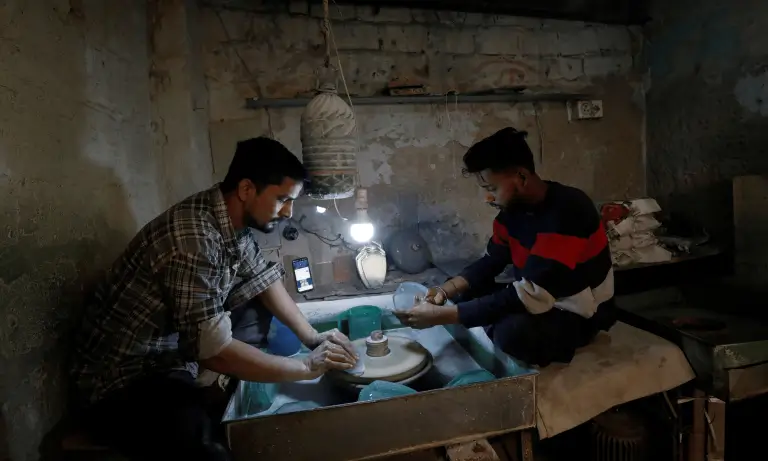At the time of writing, Pakistan is grimly witnessing heartbreaking public protests with news of several suicides. The price hikes, particularly the recent surging power bills, have earned applause. People have taken to the streets, burning their power bills and demanding relief. The rupee has hit an all-time low, and the surging dollar value has exacerbated the situation. Simultaneously, the process of delimitation is underway to ensure timely elections. Political parties are continuously consulting the ECP to hold elections on schedule. In short, the state is wavering between feudalism and democracy.
Let’s take a look at the recent updates. The caretaker Information Minister announced that a report with possible proposals to address the crisis has been prepared and will be presented before the federal cabinet for approval. Next, the interim prime minister stated, “In the meeting, we will receive a briefing from the Ministry of Power and distribution companies, and consultations will be held regarding providing maximum relief to consumers concerning electricity bills.” Following that, there was news of ongoing negotiations with the IMF for relief. Finally, as reported by the media, the caretaker prime minister has ruled out any ease. Thanks to the PDM-led government’s standby agreement with the IMF signed in late June to steer the economic train in the right direction, the government has no fiscal space to offer concessions to the public. Reducing the circular deficit and targeting subsidies are the top priorities instead. Meanwhile, the full focus of political actors is on elections. Parties are eagerly vying for the transfer of power.
Several factors contribute to this crisis episode. It is an extended tale of power theft, easy accessibility of electricity units to authoritative bodies, rising energy prices in the international market, and decades-old flawed policies. Among these, power theft stands out. It is an open exercise that, aside from the elite class and affluent backgrounds, involves many middle-class individuals. Local and regional authorities equally share the blame, as they have not taken strict measures to curb the practice. Official bodies like WAPDA and NEPRA also enjoy accessible units, a norm yet to be eradicated. The public ends up paying for it. Regarding the international energy market, Pakistan lags behind in adopting renewable energy sources and efficiently operating power plants.
Considering all these factors, while an immediate solution is not feasible, the state must seize this opportunity to work on implementing strategies to prevent an energy crisis in the long run.
Local Renewable Energy Sources
According to an article published by Reuters, “The maximum power demand met by Pakistan during the year ending in June 2022 was 28.25 GW, more than 35% lower than the power generation capacity of 43.77 GW.” The gap persists. Pakistan can feasibly consider shifting its reliance to local production with minimal obstacles. A transition from fossil fuels to a mix of solar, thermal, biomass, and wind energy will reduce spending on imports, provide production flexibility, and pave the way for energy independence. Additionally, the state of power plants warrants revision.
Building Infrastructure
While thousands of private housing schemes are approved, and every piece of land is transformed into commercial buildings, shopping malls, and plazas, it is time to pause and reconsider our approach. As a measure against the energy crisis, developing a central heating system will not only be feasible for extreme weather conditions but will also reduce electricity consumption. Thus, housing societies could yield double benefits: addressing the challenges posed by a growing population and mitigating the energy crisis.
Power Theft
Efforts to combat this long-standing issue should span from the local level to the national level. Power theft is not just an energy crisis; it is a matter of social injustice. Fortunately, effective ways to reduce power theft are available, including the intelligent use of technology. Installing smart meters, conducting rigorous meter functionality checks by WAPDA, and enabling an e-system for citizens to report power theft are appealing suggestions. However, all these efforts go to waste without effective collaboration between the government and the public, underscoring the importance of trust.
Economy-Related Policies
The economy is the backbone of the country. Experts have repeatedly emphasized the need to modify current fiscal policies and enact new ones that, once implemented, could prove efficient. Unfortunately, current financial policies leave little room for subsidies and rely on foreign reserves, ultimately leading to dependence on foreign aid. The National Electricity Policy 2021 calls for reform while emphasizing elements like sustainability. However, most policies in this field either require amendment or a complete overhaul.
The primary focus is on the government’s role, but the public can also significantly contribute by using energy-saving appliances, turning off extra electrical devices, and selling excess energy back to the grid (in the case of installed solar panels), to name a few. Engaging in allegations, blaming predecessors, and pursuing political bias would only worsen the situation and amplify the stress. Protests may provide short-term comfort, but making substantial progress requires unity and dedicated efforts.
